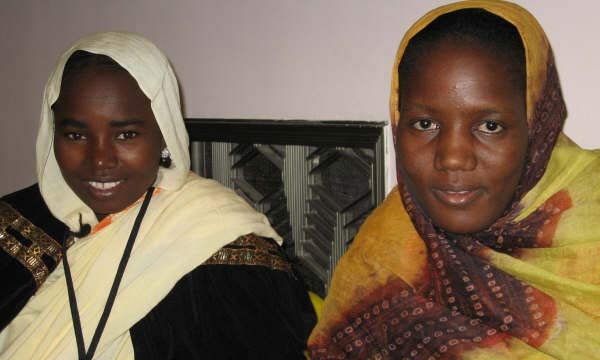December 26, 2025 04:34 am (IST)

UN urges end to social injustice of obstetric fistula
New York, May 24 (IBNS): United Nations officials on Friday called for eradicating the global social injustice of obstetric fistula, a consequence of childbirth that affects an estimated two million women and girls in developing countries but is entirely preventable with access to quality medical care.
“This International Day to End Obstetric Fistula is an opportunity to sound the alarm on this tragedy so that we may galvanize action to end it. Progress is possible,” Secretary-General Ban Ki-moon said in his message to mark the occasion.
Observed annually on 23 May, the Day aims to raise awareness about, generate new support for and speed up efforts to end an injury that harms women physically, socially and economically.
Most women who develop fistula, a hole in the birth canal usually caused by prolonged, obstructed labour, remain untreated for their entire lives, and the condition can easily recur in women and girls whose fistula has been surgically treated but who receive little or no medical follow-up and then become pregnant again.
“It is an appalling fact that in our world of modern medical advances, nearly 800 women still die from pregnancy-related complications each day, and for every woman who dies, almost 20 more are injured or disabled with severe or life-shattering, long-term conditions such as obstetric fistula,” said Ban.
The Secretary-General said that addressing obstetric fistula is more than a matter of health. “It is a human rights imperative,” he stated, adding that, if left untreated, the condition can contribute to social isolation and depression and lead to chronic medical problems.
Over the past dozen years, some 47,000 women and girls have received surgical treatment supported by the UN Population Fund (UNFPA), which leads the global Campaign to End Fistula.
“Fistula is fully preventable when all women and girls have access to high-quality, comprehensive sexual and reproductive health services, especially family planning, maternal health care and emergency obstetric care,” said Ban, who called for joint efforts to eliminate this “global social injustice.”
The theme of this year’s Day is “Tracking Fistula – Transforming Lives” and reflects an important step forward in eradicating this preventable condition.
“To treat fistula and provide women with follow-up medical care, we need to know more about how many women and girls are in need of services and also where they live,” UNFPA Executive Director Babatunde Osotimehin said in a statement.
“In most instances, stigma forces women living with the condition to remain hidden and isolates them from families and communities. By systematically registering and tracking each woman and girl who has or had an obstetric fistula, we can make enormous strides in improving their well-being and increasing the chances of their babies’ survival in subsequent pregnancies.”
Dr. Osotimehin said that eliminating the health crisis of obstetric fistula requires scaling up countries’ capacities to provide access to equitable, high-quality sexual and reproductive health services, including family planning and maternity care, especially comprehensive emergency obstetric care.
“Tracking and treating all fistula cases is crucial, but it is also necessary for countries to take steps to prevent fistulas by addressing underlying medical and socio-economic causes, eliminating gender-based social and economic inequities, preventing child marriage and early childbearing and promoting education, especially for girls,” he added.
Despite the progress made, the Executive Director said that far more support and momentum are needed to enable the Campaign to expand its reach to all corners of the world where women suffering from fistula remain isolated and often unaware that treatment is available or even possible.
“The time has come to put an end to obstetric fistula and address the circumstances that perpetuate it, including poverty, lack of access to health care, child marriage and early childbearing.
“We have the resources and know-how. What we need now is the political will to elevate the status of women and girls, rectify inequalities and protect the human rights of every woman and girl, so that fistula may never again undermine a person’s health, well-being, dignity and ability to participate in and contribute to their communities.”
(Two women in Mauritania who had operations for obstetric fistula. Photo: IRIN/Manon Riviere)
Support Our Journalism
We cannot do without you.. your contribution supports unbiased journalism
IBNS is not driven by any ism- not wokeism, not racism, not skewed secularism, not hyper right-wing or left liberal ideals, nor by any hardline religious beliefs or hyper nationalism. We want to serve you good old objective news, as they are. We do not judge or preach. We let people decide for themselves. We only try to present factual and well-sourced news.
Support objective journalism for a small contribution.
Latest Headlines
Importance of Comparing Health Insurance for Parents Based on Features and Premiums
Mon, Dec 22 2025
Financial stress is ageing your heart faster, new study suggests
Mon, Dec 22 2025
Brazil makes history: WHO confirms elimination of mother-to-child HIV transmission!
Sun, Dec 21 2025
Game-changing blood test may spot lung cancer before symptoms appear
Fri, Dec 19 2025
One pill instead of many: Combination drugs may simplify high blood pressure treatment, says new study
Wed, Dec 17 2025







